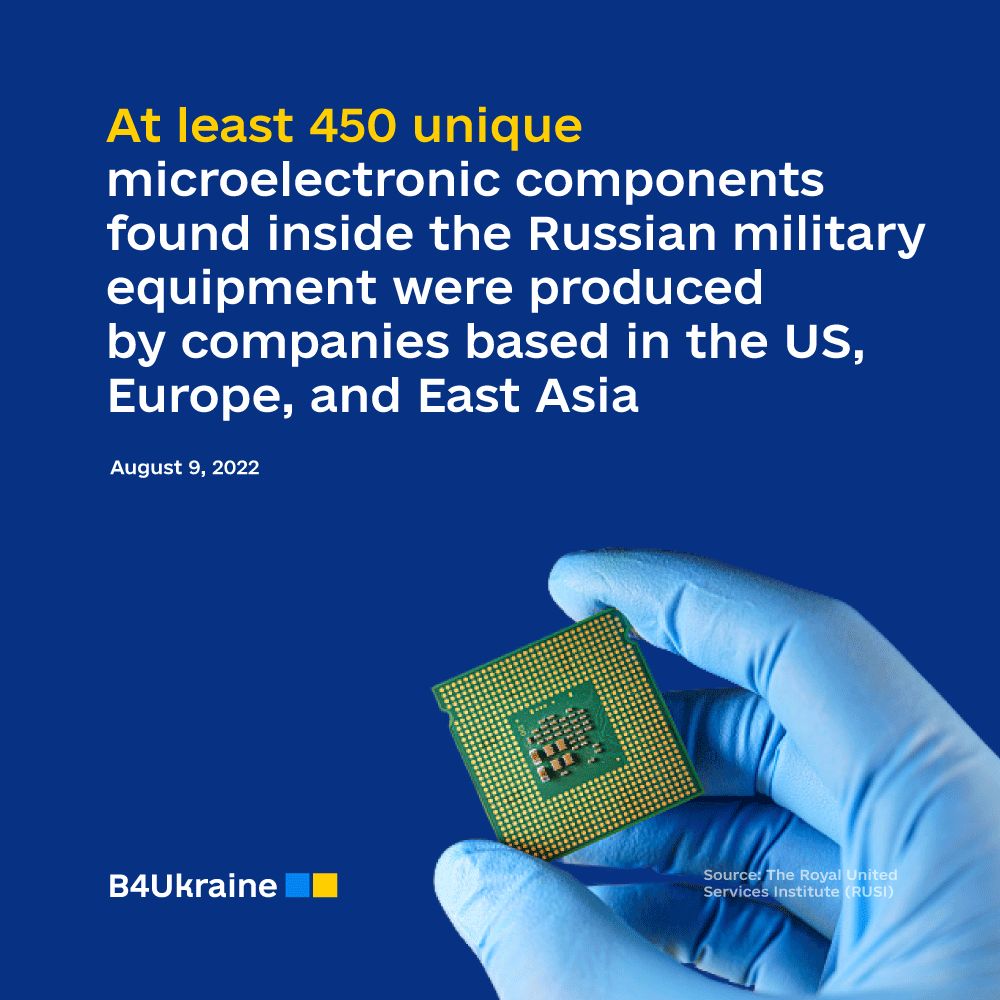
At least 450 unique microelectronic components found inside the Russian military were produced by companies based in the US, Europe, and East Asia, according to the new report by RUSI. 317 of them were made in the US. These numbers signify that Russian weapons can’t function and be used for active warfare without foreign tech.
“Russia’s military power has been sustained by a silicon lifeline; one that runs from the US, through the UK, the Netherlands, Germany, Switzerland, and France, to Taiwan, South Korea, and Japan. Without that lifeline, the Russian military will be destined to employ increasingly obsolescent technology, without the means to deliver precision or efficiency on the battlefield,” the researchers write.
However, Russia can be inventive when it comes to receiving necessary parts for the weapons. One way to cheat the restrictions relies on the fact that many semiconductors have multiple applications. It means that even if the shipment was destined for civilian use (in a washing machine or a microwave, for example) it may later be found in Russian weapons systems.
Ukraine has already inspected hundreds of rockets fired by Russia and found examples of civilian tech parts being used in Russian weapons.
But this is not the only trick up the Russian sleeve. As the research states, much of Russia’s procurement of Western microelectronics for military purposes involved the use of false end-user certificates, front companies, and transshipments. In particular, third-country transshipment hubs and clandestine networks operated by Russia’s special services are now working to build new routes to secure access to Western microelectronics.
According to Reuters, many commodity electronic components still aren’t subject to export controls. And even if they are, there’s a global galaxy of suppliers and traders in East Asia and other countries that are willing to ship them and are often beyond the control of Western manufacturers.
A review by Reuters of Russian customs records identified more than 15,000 shipments of Western electronic components that reached Russia after its Feb. 24 invasion of Ukraine through the end of May. The manufacturers included AMD, Analog Devices, Infineon, Intel and Texas Instruments.
To cut Russia’s silicon lifeline, foreign tech companies must face stronger bans on trade with Russia. Also, we are in dire need of stronger control over any possible third-party that can help Russia to go around sanctions. Unlike many other restrictions, this one has a direct impact on the intensity and overall prospects of Russia’s war against Ukraine and should be taken care of as soon as possible.